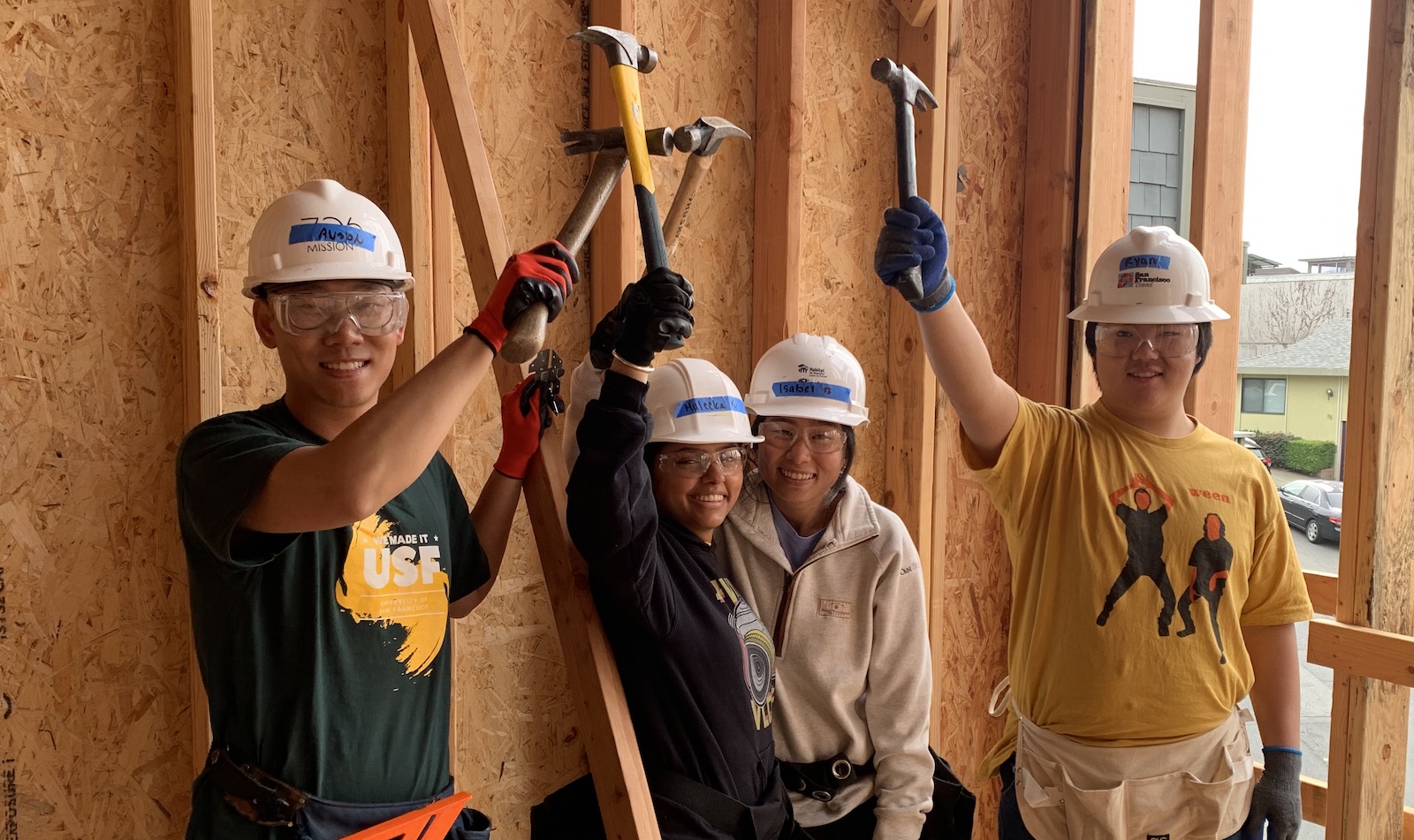Community-Engaged Learning at USF

At USF, all undergraduate students will take at least one community-engaged learning (CEL) course. These courses are designed to develop students’ civic capacities and commitments, enhance their disciplinary knowledge and skills, and address community-identified priorities and needs. By integrating community engagement into credit-bearing courses, students have the opportunity to contribute to positive social change by working alongside community leaders on projects and activities that also connect with their academic course content.
Community partners play a critical role as co-educators of students, and collaborate with faculty to facilitate deep learning about social justice issues, community resilience, and civic participation. Students also have the chance to build mutually enriching relationships with peers and community members through these courses. The McCarthy Center supports community-engaged learning by providing faculty development, cultivating and maintaining community partnerships, and facilitating orientations, reflections, and social justice lessons for students.
Dimensions of Community-Engaged Learning
All courses that hold the Community-Engaged Learning (CEL) designation, must demonstrate alignment with the following dimensions:
- Develop students’ understanding of communities and environments most affected by injustice, and prepare them to lead lives committed to social justice
- Contribute to the common good by building the capacity of individuals and organizations to address community-identified priorities and desires
- Draw upon student and community voices to shape the course’s learning and engagement activities
- Integrate guided critical reflection to help students make meaning of intersections between academic knowledge and civic engagement
- Include formative and summative assessment of student learning and community outcomes
- Foster reciprocal and authentic relationships that honor community partners as co-educators
- Reflect shared leadership and solidarity with community
- Integrate sustained community relationships, ongoing communication, shared expectations, and collaborative planning
Frame the course as service-learning, participatory and community based research, internship, field experience, or immersion
Reflect a commitment to social justice-oriented community engagement in content and pedagogy
Prioritize the quality of the community experience over quantity of hours, but aim for a minimum of 20 hours of engagement
Partnering with Community
At USF, community-engaged learning happens in the context of mutually beneficial partnerships between USF faculty members and community partners. “Community partner” is a broad term that may include nonprofit and government staff, community organizers and leaders, or other individuals engaging in supervision and mentorship of students while they are in the community.
USF partnerships are rooted in the concept of “reciprocity,” meaning that faculty, students, and community partners all contribute to the success of the partnership and should equitably benefit from the outcomes. The community partner is empowered to identify the most pressing priorities, expectations, and needs of the host organization or community, and determine the best way for students to provide a benefit through their course-related service. In return for student service, community partners act as co-educators who bring their own wisdom and experience to bear on student learning and development.
USF Definition of Community Engagement
Community engagement is the development of sustained and authentic partnerships between the university and its diverse city, state, national, and global communities for the reciprocal exchange of knowledge, skills, and resources. Community engagement can take many forms: service-learning, community service, participatory research and public scholarship, training and technical assistance, and other activities that promote the shared interests of community partners and lead to transformational experiences for faculty, staff, and students. Community engagement prepares educated and committed people who are concerned about society at large and particularly those who are poor, unprotected, and neglected. By addressing critical societal issues at home and abroad, students, faculty, and staff contribute to the common good and to changing the world.